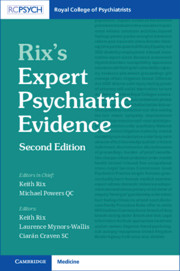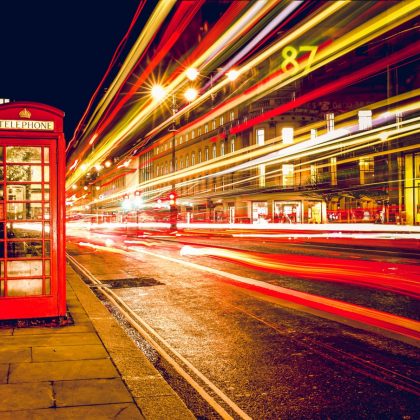Rix’s Expert Psychiatric Evidence
This week at London’s Central Criminal Court, or the Old Bailey as it is known, I was asked by another expert why the judges all wear black robes instead of the colourful dress of other circuit judges and why they are addressed as ‘My Lord’ or ‘My Lady’ instead of ‘Your Honour’. Asked why judges in the Isle of Man are called ‘deemsters’ and jurors in the Channel Isles are called ‘jurats’, the answer in general terms is the same: it’s down to traditions and the quirks of history.
As the second chapter of Expert Psychiatric Evidence describes, the legal systems and the court procedures in the nine jurisdictions of the British isles are different. And they are different to those even in other countries whose legal systems have their foundations in the English common law. But what they all have in common is the pursuit of justice and the first chapter’s exposition of the duties and responsibilities of the medical expert witness is of world-wide application. Again, report requirements vary from one jurisdiction to another but the chapter on writing reports is generally of universal application. In any jurisdiction there is no place for an expert opinion that is not reasoned or for which the factual basis is unclear or incomplete. Although some cases are tried by specialist tribunals, some by judges trained in the law, some by lay magistrates with no legal training and some by lay jurors or jurats, all triers of the facts require user-friendly reports written in language that they can understand.
When I wrote the first edition of Expert Psychiatric Evidence I was able to draw on thirty years’ experience of giving expert evidence and this provided the foundation for a textbook which takes a practical approach to the whole range of issues for which courts and tribunals need the expert assistance of psychiatrists. Since its publication there have been a multitude of reported cases which have implications for experts in general and psychiatric experts in particular and there have been legislative changes, such as those affording better protections for vulnerable witnesses and defendants, with which expert witnesses must be familiar. When I started out as an expert psychiatric witness decades ago I had no idea that I would be writing today about capacity to use social media which is just one of the many issues with which a psychiatrist may need to assist the court.
My training as an expert psychiatric witness in the early 1980’s was second to none, but it was in the era of ‘see one, do one, teach one’. The apprenticeship model still has its place in the training of expert psychiatric witnesses and is central to higher training in forensic psychiatry which affords many expert psychiatric witnesses the opportunity to begin their expert witness practice under skilled supervision. The aim of the editors and authors of the second edition of Expert Psychiatric Evidence is to provide a resource to complement that on the job training by having an answer to every question that might arise in the practice of the expert psychiatric witness and if not all of the answers are there it will be a good argument for bringing forward the third edition.
Photo by Bill Oxford on Unsplash






